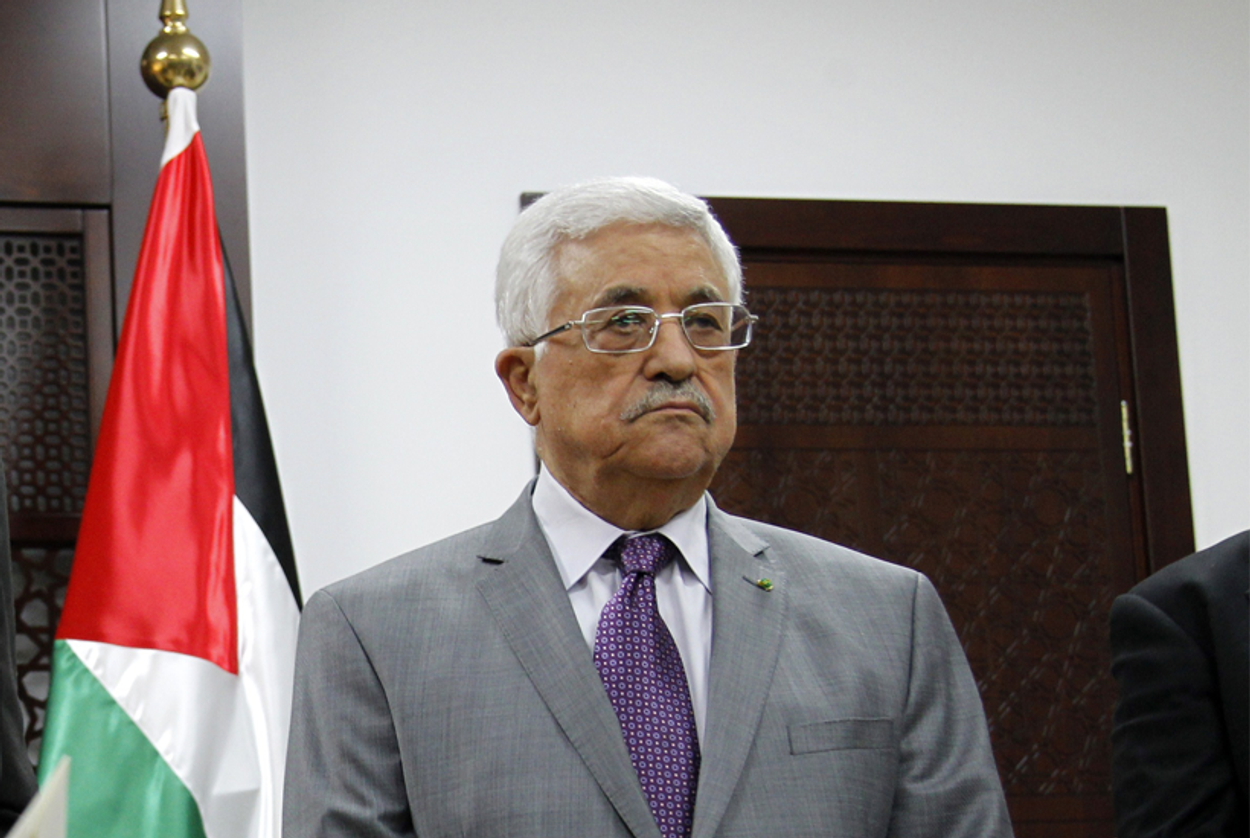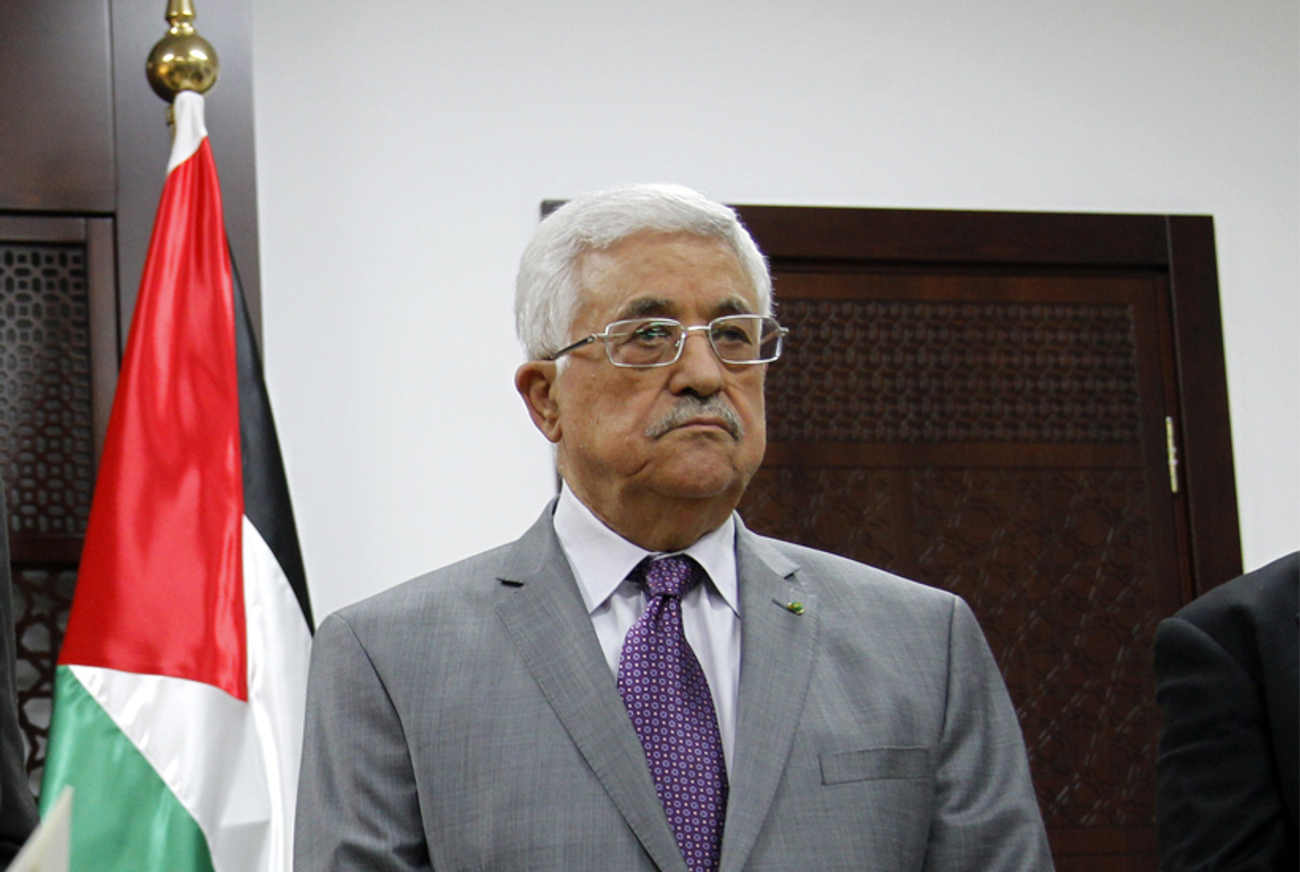Dear Mahmoud Abbas: Do You Have a Vision for the Future of Palestine?
A letter to the president of the Palestinian Authority about hope, responsibility, and David Ben-Gurion




The following is intended primarily for the attention of Tablet reader Mahmoud Abbas. We ask for our other readers’ indulgence as we take a moment to address a few minor issues such as the nature of any future Palestinian state.
Dear Mahmoud,
As these seem to be idle days for you—the only definitive statement from Fatah, as your future coalition chums in the Hamas are busy pummeling Israel with hundreds of rockets targeting civilians, was to join in on the fun and launch a few missiles of its own—I thought you might have time to ponder some existential questions. Just one, really, but one that really matters: What’s your vision for the future of Palestine?
It’s not really a theoretical question. Because this ain’t your first rodeo, you know that sooner or later the artillery is going to die down, and when it does much of the civilized world will again rush to your doorstep and urge you to consider yet another variation on a permanent agreement with Israel. If the past is any indication, they would likely be offering you much by way of incentives; but none of them, probably, would ask you the only question that truly matters for a head of state in waiting, namely just what would a future Palestine look like.
Your counterpart on the other side of the Green Line seems to have an answer. Giving an uncharacteristically candid press conference last week, Benjamin Netanyahu said that Israel did not want “another Gaza in Judea and Samaria,” which was why “there cannot be a situation, under any agreement, in which we relinquish security control of the territory west of the River Jordan.”
Can you blame Bibi for feeling grim? The thought of more missiles and more fundamentalist zealots even closer to home is terrifying. And when Israelis try to imagine a putative independent Palestinian neighbor to the east, all they can think about is terror and violence.
And that, Mahmoud, is largely your fault. Without engaging in the region’s favorite pastime, the casting of blame, you must acknowledge that you’ve done very little, since you took office nearly a decade ago, to communicate what kind of society you had in mind once your national aspirations were met and Palestine was born. All we’ve seen from you are vignettes of a wasteful, corrupt, and repressive government met with derision by its own people. And all we’ve heard from you are accusations that all of your nation’s ills were the direct result of the Israeli occupation. Neither, naturally, do much to inspire confidence.
The burden of proof, then, is now on you. And it’s a heavy one. You could argue, as I’m sure many of your liberal sympathizers would, that the right to self-determination is universal and requires no preconditions. That’s a debatable proposition in classrooms and newsrooms, but it hardly passes muster when it comes to the cold reality of geopolitics. In the real world—and anyone who has survived as long as you have under such demanding circumstances surely knows that well—the calculations are far less sentimental. For most Israelis, the calculation is whether they would rather end the occupation—a proposition most of them support—and risk a failed state run by Hamas or worse right next door, or maintain a military presence in the West Bank, at a considerable economic and emotional cost, and know that their well-being is far more likely to be upheld. If asked to choose between keeping up checkpoints or risking the rise of ISIS, most rational people—even those who, like me, strongly oppose the occupation—wouldn’t think twice.
Which brings me back to the vision thing. If you are serious about your historic mission, if you’re interested in anything but basking in the eternal sunshine of constant victimization while running a war of attrition against Israel, if you’re at all worthy of leadership, then speak up. The coalition partners you’ve chosen have shown themselves again and again to be nothing but murderous maniacs who had no other agenda save for bathing their own people and Israel’s in blood. If you want anyone to believe you’re any different, tell us about Palestine.
And please, don’t give us any more about Israeli culpability. Most intelligent human beings, and, again, most Israelis, realize the highly problematic nature of placing other people under military governance. Instead, it’s time to do what you’ve never done and tell us what to expect of your nascent state.
Would it be a democracy? Would it guarantee, as the Palestinian Authority had failed to, the freedoms of expression and of the press? Would it treat women with respect, or would it foster the same rigid patriarchy that is currently responsible for 37 percent of Palestinian women being subject to domestic violence by their husbands? Would it respect the rights of LGBT Palestinians to live and love as they please, or would it persecute them? Would it curb its killers and its brutes? Would it prosecute the mighty when they transgress, and protect the innocent from undue harm?
The answers to these questions matter. They matter a whole lot, to Israelis and Palestinians both. If you truly want to move past retribution, you should speak up, the sooner the better.
For inspiration, you could do no better than Israel’s founding father, David Ben-Gurion. Side by side with fighting for sovereignty, the tuft-haired leader understood, to borrow a useful phrase from an American poet, that in dreams begin responsibilities. That is why he used force only sporadically and didn’t hesitate to take the most extreme measures against those he believed didn’t. That is why he helped set up a host of robust state-run industries responsible for anything from delivering milk to building homes. That is why he wrote and spoke extensively about the society he had in mind, one that combined the passion of Zionism with the promise of equality. And that is why he succeeded so brilliantly: Despite the yoke of the British occupation, despite the antipathy of the international community, he thrived because he had a clear vision for the future.
Your people, Mahmoud, deserve the same. Anyone who is really serious about a future free Palestine should demand that you show yourself capable of building the kind of state Palestinians, like people everywhere, crave, which is to say one that is prosperous and free. In your inaction, in your silence, all we hear are more rockets.
***
Like this article? Sign up for our Daily Digest to get Tablet Magazine’s new content in your inbox each morning.
Liel Leibovitz is a senior writer for Tablet Magazine and a host of the Unorthodox podcast.
Liel Leibovitz is editor-at-large for Tablet Magazine and a host of its weekly culture podcast Unorthodox and daily Talmud podcast Take One. He is the editor of Zionism: The Tablet Guide.